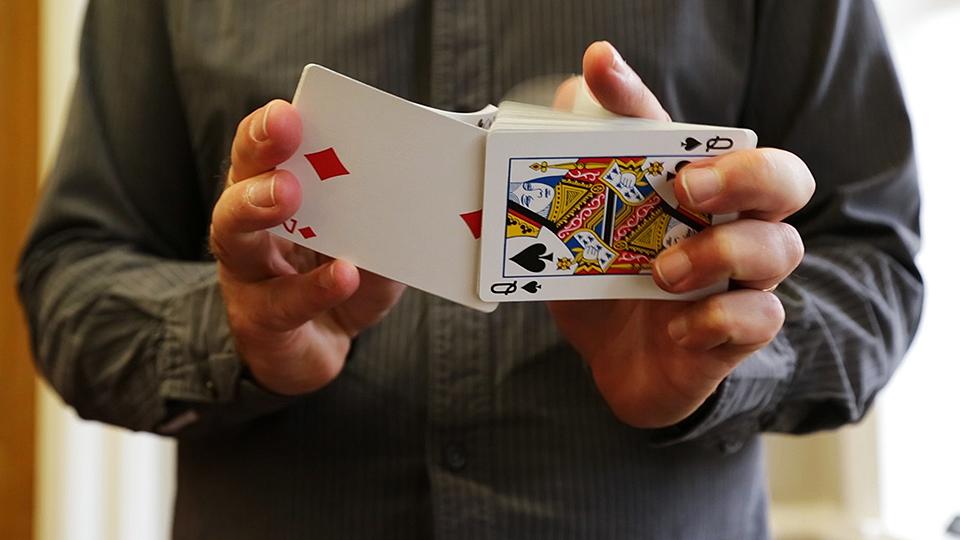Magic makes you believe, even if you know it’s a trick
Primary page content
Watching a magic trick makes people more likely to believe in the impossible regardless of whether it is presented as magic or science, research led by Goldsmiths, University of London suggests.

For the study, 90 undergraduates watched a trick where a volunteer concealed a coin in their right or left hand. A performer then correctly identified where the coin was claiming this was achieved by reading a person’s mind by observing micro expressions, psychological profiles, or muscle-reading.*
One group was told the performer was a magician while the other group was told he was a psychologist.
Before the demonstration participants were uncertain if it was possible to use ‘mind-reading’ skills to detect which hand held a coin. Afterwards the results from both groups were the same: surveys showed, whether people were told they had seen a magician or psychologist, on average, belief in such impossible feats increased.
A report of the research is published in the journal PLOS ONE.
Dr Gustav Kuhn, Reader in Psychology at Goldsmiths and co-author of the study said: “Previous studies suggested that telling people something was performed by a magician might increase their scepticism, as most magicians are honest about the fact they are trying to deceive us. What we found was the knowledge that a performer was a magician or a psychologist made no difference: regardless, viewing this kind of pseudo-psychological demonstration made people more ready to believe the impossible.
“This has worrying implications for the way we process the fake news and misinformation that’s all around us. It is further evidence that our ideas of what is real or fake are more malleable than we think and that even where the source of a fake video is discredited or a story is debunked we can still be inclined to believe it.”
The researchers said that more work is needed to determine what can be done to prevent people being influenced by fake narratives and what the long term impacts of exposure to sources of misinformation could be.
A report of the research, entitled ‘Fake science: The impact of pseudo-psychological demonstrations on people’s beliefs in psychological principles’, is published in the journal PLOS ONE. The research team included researchers from Tsinghua University, China and Lausanne University, Switzerland.